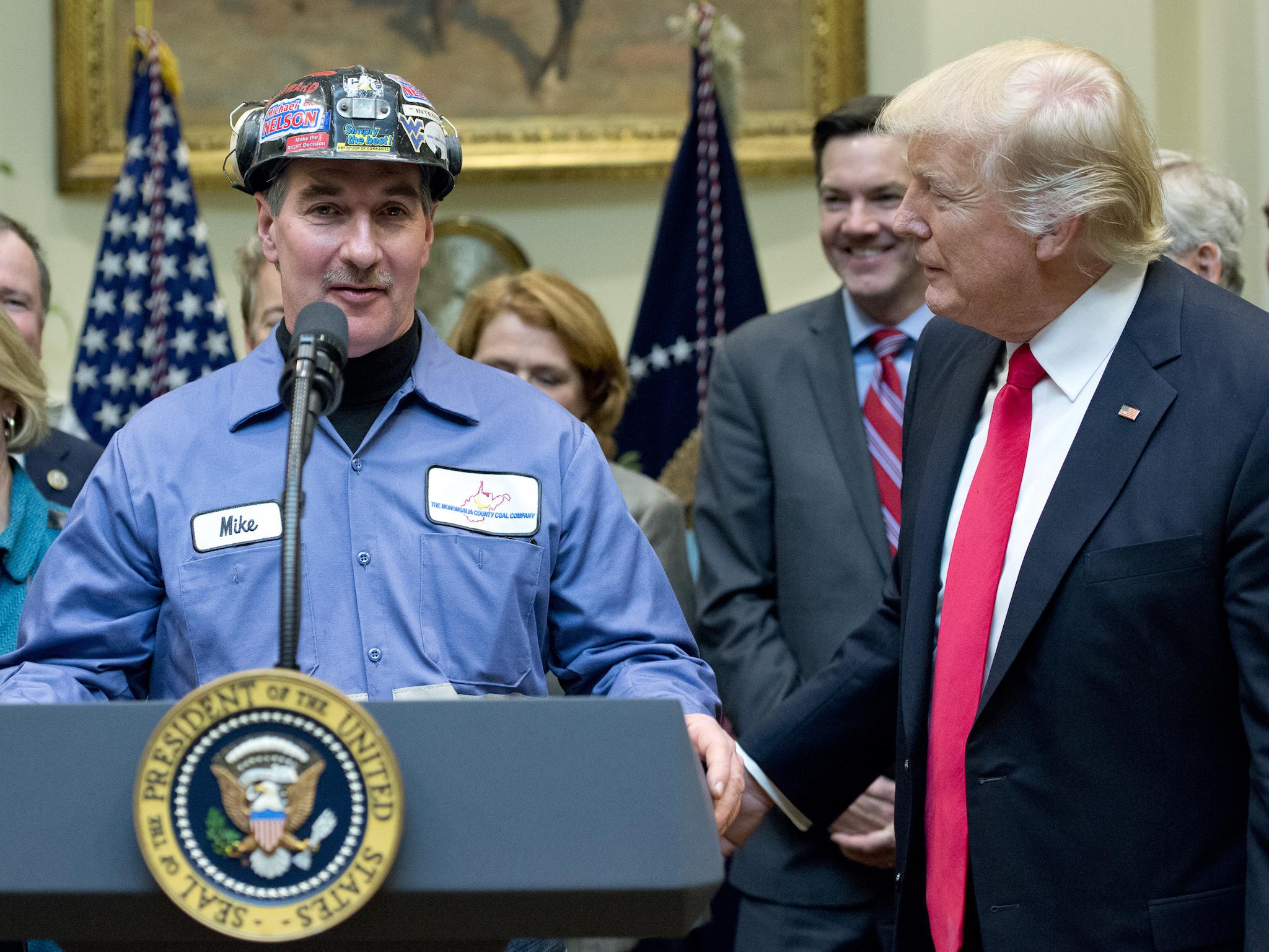The word 'Science' disappears from Environmental Protection Agency office's mission statement
The government will instead focus on work that is 'economically and technologically achievable'

Your support helps us to tell the story
From reproductive rights to climate change to Big Tech, The Independent is on the ground when the story is developing. Whether it's investigating the financials of Elon Musk's pro-Trump PAC or producing our latest documentary, 'The A Word', which shines a light on the American women fighting for reproductive rights, we know how important it is to parse out the facts from the messaging.
At such a critical moment in US history, we need reporters on the ground. Your donation allows us to keep sending journalists to speak to both sides of the story.
The Independent is trusted by Americans across the entire political spectrum. And unlike many other quality news outlets, we choose not to lock Americans out of our reporting and analysis with paywalls. We believe quality journalism should be available to everyone, paid for by those who can afford it.
Your support makes all the difference.An office of the Environmental Protection Agency has had all reference to science removed from its mission statement.
The EPA once proudly told visitors that a large part of its work was scientific research to help improve the climate and the environment. But those references have since been removed and replaced with a reference to things that are "economically and technologically achievable".
Campaigners have said that the change is likely hugely significant, in line with other attempts to remove scientific and climate change work from the US government. It is just one of a range of changes and statements from officials that seem to signal a significant change in the way the government works.
The removal of the word "is probably the most important thing we've found so far", said Gretchen Gehrke, who works on a team at the Environmental Data and Governance Initiative. "The language changes here are not nuanced—they have really important regulatory implications," she told the New Republic.
The changes were made to the website of the Office of Science and Technology, which among other work develops clean water standards for states.
Until the end of January, the website described that work as "science-based", meaning that it would make recommendations based on peer-reviewed, solid scientific work into what counts as safe levels of pollutant in water meant for drinking, swimming or fishing. But now that reference has been removed, and it has been replaced by a message saying only that clean water will be recommended where it can conform to "economically and technologically achievable standards".
As such, it could mark a major movement from working with scientists to guarantee safe water for citizens of the US. Instead, those decisions could just be made based on the technology that is available.
Even more, the wording could be used to reduce the regulations that currently apply.
Environmentalists often argue that clean water should be assessed by scientists on a performance basis, who check for the amount of certain pollutants that are found in water. But instead, the technological approach could just require companies to install certain pieces of equipment – whether or not that equipment makes the water clean enough to drink or swim in.
The move towards technological language is in keeping with the outlook of new head of the EPA, Scott Pruitt. He has argued repeatedly that his job is to work with stakeholders including industry, farmers and business owners – but not environmentalists or scientists – to protect the environment.
The Union of Concerned Scientists, a science advocacy organisation, told The New Republic that it shared those concerns. Moving towards what companies claim is feasible for them would mark a "major change in direction" and could signal that the EAP is turning to see their job "as being a support for business as opposed to safeguarding public health".
Join our commenting forum
Join thought-provoking conversations, follow other Independent readers and see their replies
Comments